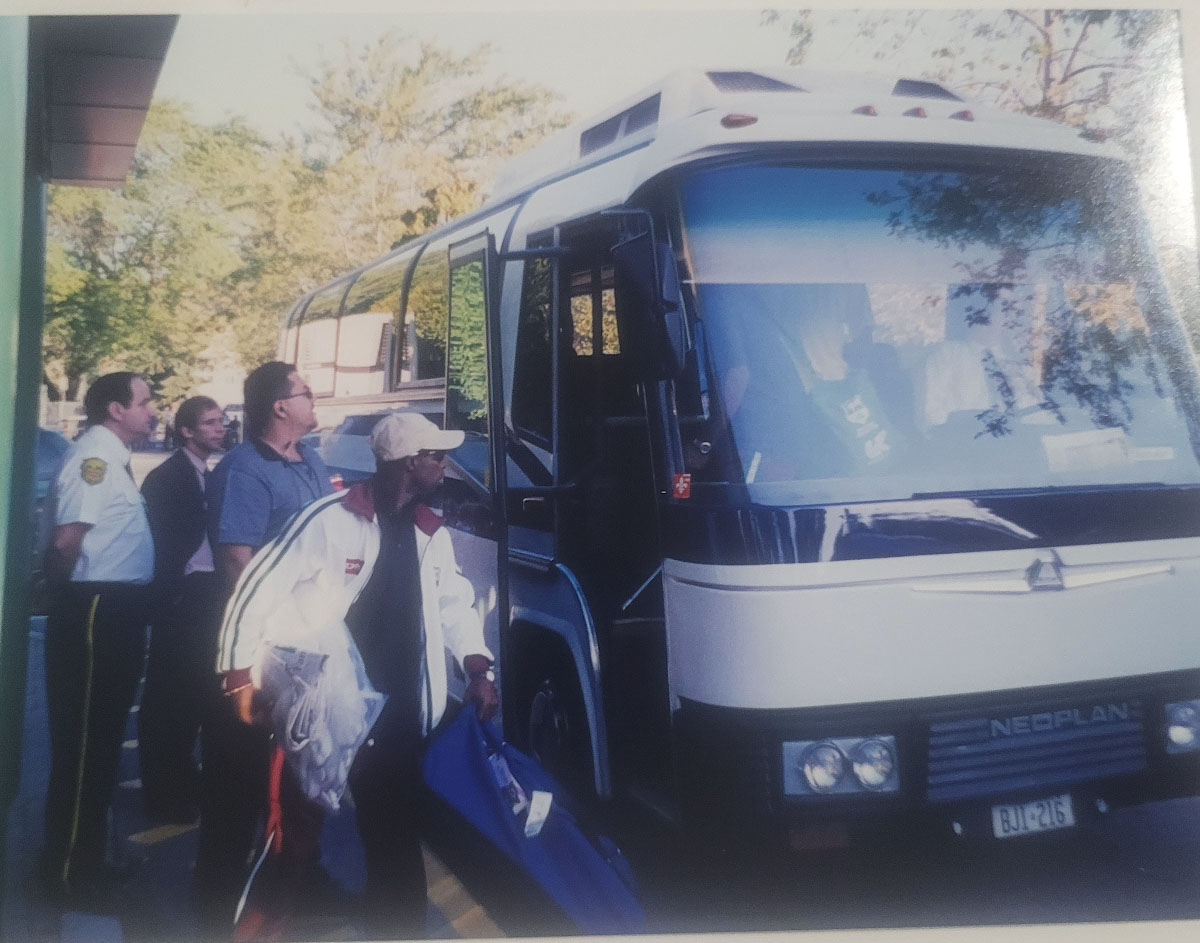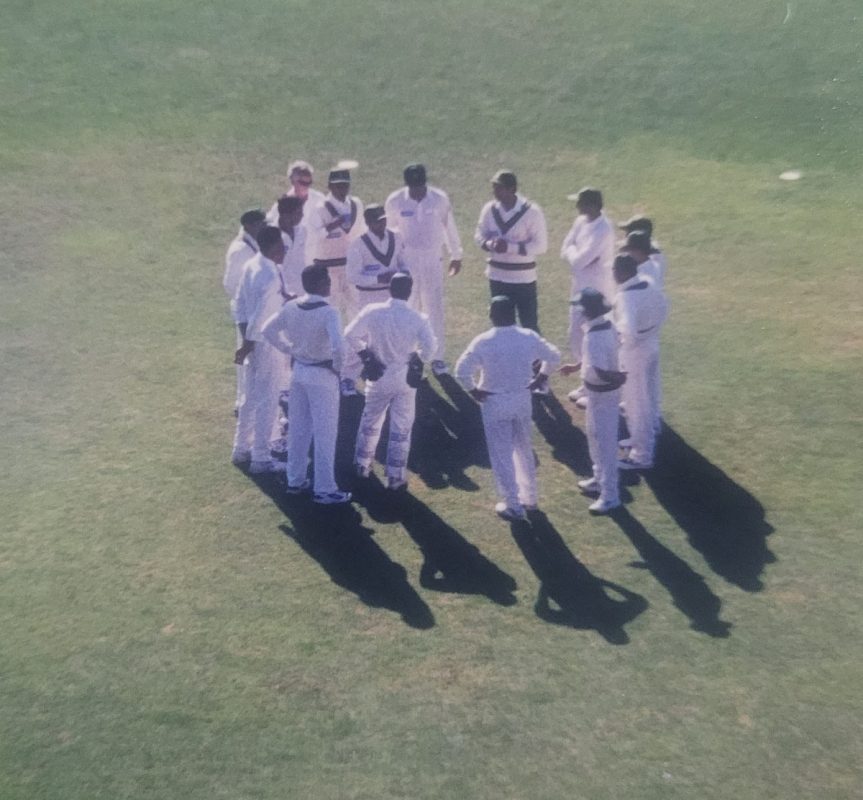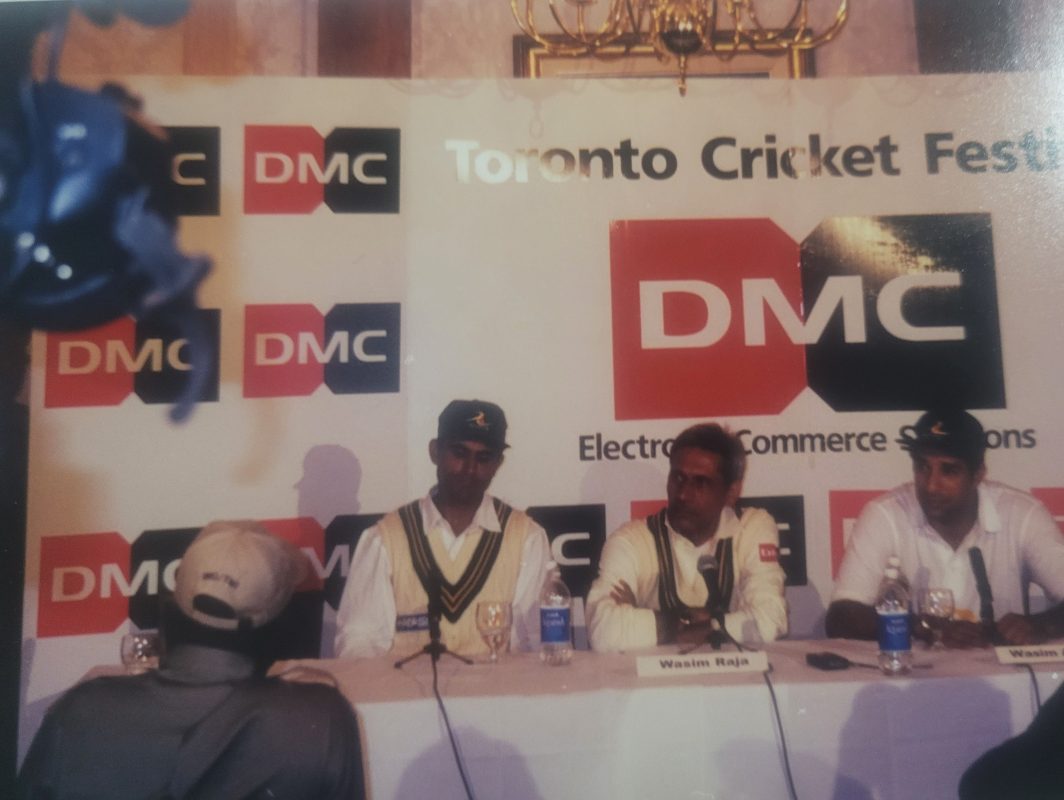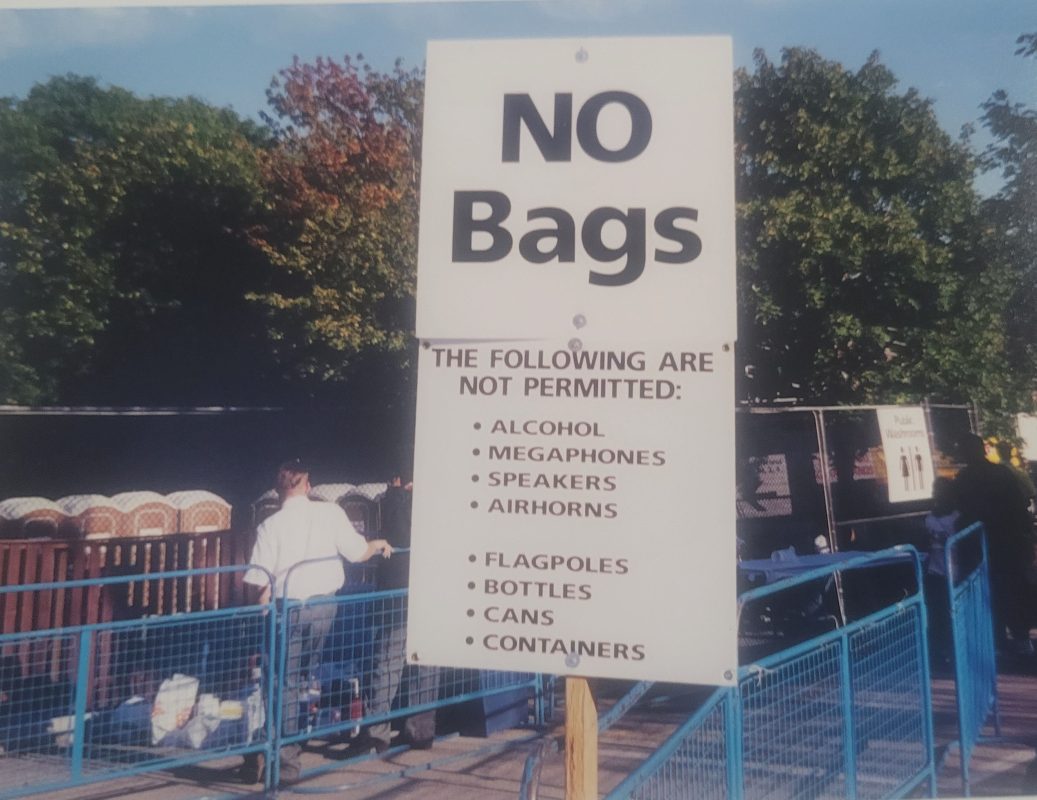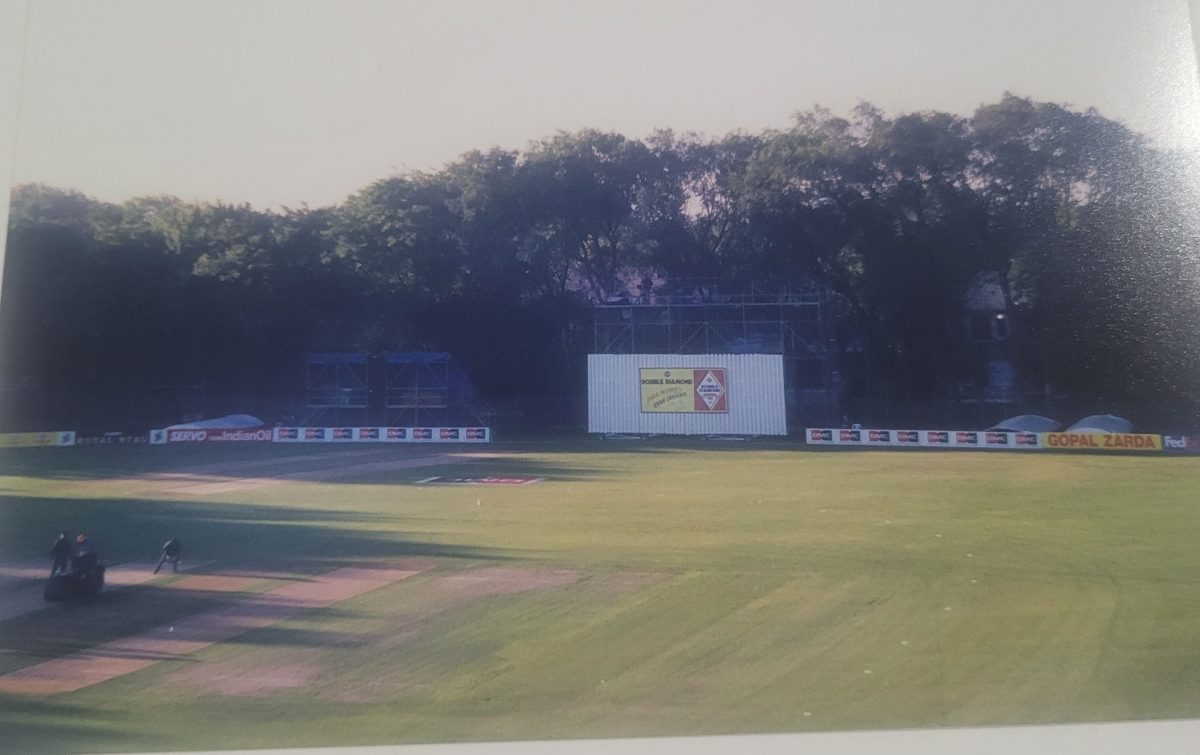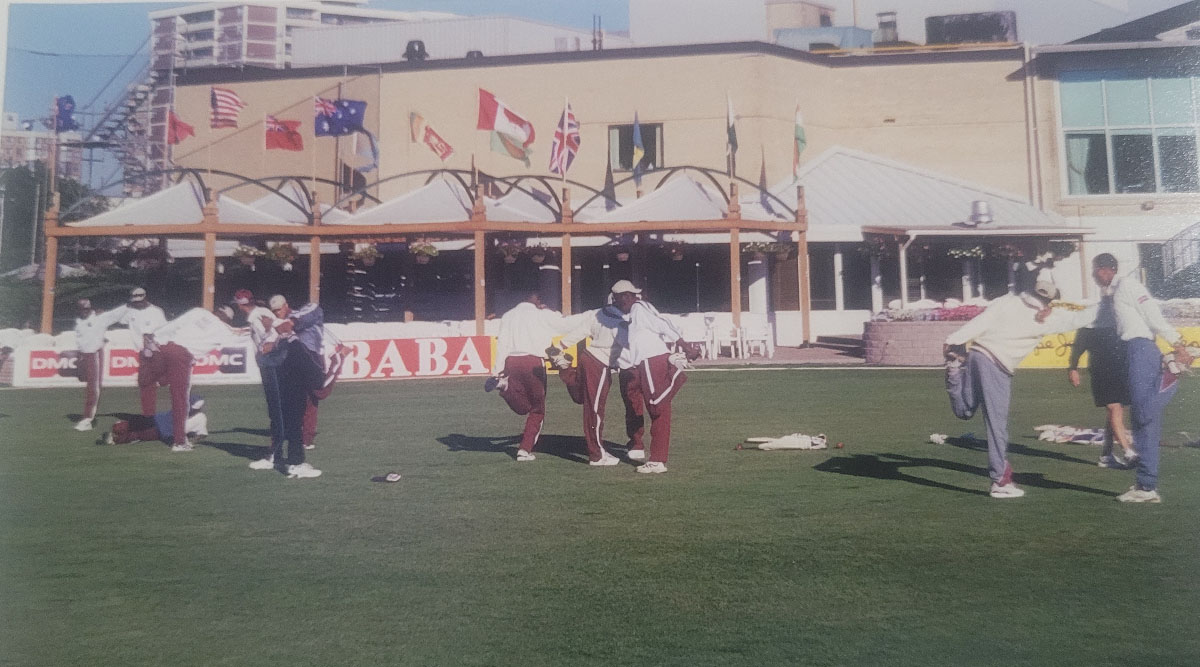In this week’s edition of In Search of West Indies Cricket, the second of two parts, Roger Seymour recounts the performance of the West Indies at the 1999 DMC Cricket Festival, Toronto, Canada.
Recap
In August 1999, the highly anticipated fourth edition of the annual Sahara Cup Tournament between India and Pakistan was cancelled because of the Kargil War which took place between May and July in the Kashmir Valley. At the midnight hour, International Management Group (IMG), the desperate organisers, had adroitly wangled the services of the West Indies team to salvage the event. Under the revamped arrangements the rivals would play the West Indies in two separate three-match tournaments in the DMC Toronto Cricket Festival.
The somnambulists
Saturday, 11th September, the first match of the DMC Cup between India and the West Indies. The late summer weather of the early morning – clear blue sky, sunny, cool, light breeze – was perfect for cricket as the West Indies team boarded their coach at the luxurious Sutton Place Hotel located on the Bay Street corridor of Downtown Toronto. The coach wove its way northbound along the elegant Avenue Road, through the well-established upscale Toronto neighbourhoods of the Annex, Forest Hills, Caribou Park, Lytton, Bedford Park, and Ledbury Park, on the ten kilometre journey to the Toronto Cricket, Skating, & Curling Club (TCSCC) at 141 Wilson Avenue.
Aged Maple and Oak trees lining the sidewalks, shaded the well-manicured lawns of the elaborate homes well known for their grandeur and architecture. These grounded sentinels, weathered products of the vagaries of the four seasons, loomed in stark contrast to the wandering occupants of the coach. The West Indian cavaliers had been on the go for most of the year. In early February, they beat a hasty retreat from South Africa following a disastrous three-month tour, where they were shellacked 0 – 5, in the five-Test series, and drubbed 1 – 6 in the ODI series. Back home in the Caribbean, the visiting Australians held on to the Sir Frank Worrell Trophy after an intense 2 – 2 drawn four-Test series. A seesaw seven-match ODI series in April finished in a 3 – 3 draw (one match was tied) , as neither team, once again, managed to get the upper hand. In May, West Indies’ fans watched in disbelief as their team exited the ICC World Cup in England in the first round on net run rate difference, despite having a similar 3 – 2 win/loss record as fellow Group B opponents, Australia and New Zealand, who advanced to the Super Six stage.
Three days before, the West Indies had been halfway across the world capturing the Coca Cola Singapore Challenge Trophy. This tournament had pitchforked them into North America, in a role akin to that of a UN peacekeeping force. It was the first time the West Indies were going to experience a turf wicket in Toronto, following exhibition matches earlier in the decade on artificial surfaces. They were still coming to terms with the unexpected announcement by 12-year veteran Carl Hooper, that he was retiring from international cricket, following the sixth ODI against Australia in Barbados. The selectors, faced with Hooper’s sudden departure on the eve of the World Cup, had chosen 20-year-old Ricardo Powell as the all-rounder’s replacement. Powell’s young Jamaican brethren, Wavell Hinds and Chris Gayle, were newcomers to the squad which was a blend of experience and youth.
The Toronto Cricket Club (as the TCSCC is commonly referred to), under the expert supervision of IMG, had been transformed from a picturesque venue in the suburbs of North York to an international stage. Two large trucks, mounted with satellite dishes, occupied several spaces in the parking lot, four temporary stands and towers for the television cameramen had been erected, and the roof of the pavilion had been transformed into a media centre constructed with scaffolding. Security guards, smartly attired in ties, white shirts and dark trousers, were in place. Enthusiastic fans of both teams, most of whom were shuttled for a Cdn$4 fee from the event’s designated parking lot at the Jolly Miller Tavern, (a former horses and carriages stop dating back to the 1860s), five minutes east, on Yonge Street, had paid Cdn$20 for weekend matches, and Cdn$10 for the mid-week games.
Saurav Ganguly, leading India in the absence of injured captain Sachin Tendulkar, who was in Australia receiving treatment for a back injury, won the toss and invited the West Indies to bat. The jet-lagged West Indians were soon floundering at 57 for four, with Adrian Griffith, Shiv Chanderpaul, debutante Gayle and Lara back in the dressing room. Ganguly, familiar with the turf wicket, continually rang up bowling changes to keep the batsmen guessing. Powell then joined opener Sherwin Campbell, and for a short period, appeared destined to replicate his heroics of four days prior, when he plundered the same opponents for a blistering knock of 124, leading the side to the Coca-Cola Singapore Challenge Trophy, with four wickets to spare. His quickfire innings of 37 off 34 balls, inclusive of two massive sixes and five boundaries, came to an end just when he was taking command, skying a catch to deep point off Robin Singh, the former Trinidad and Tobago Under-19 Youth Captain (1982/83), then resident in India. Apart from Campbell, who compiled a patient knock of 62 and held the innings together, no one else passed 20. The listless West Indians were dismissed for 163 in 46.2 overs.
India easily cruised past the paltry total in 37.3 overs for the loss of two wickets, generously assisted by untidy bowling which conceded 27 extras, courtesy of 14 wides (w), 11 leg byes (lb), and 2 no balls (nb). As the day wore on, the lacklustre West Indians appeared to be sleep walking, and at the post-match press conference Lara, not offering an excuse, conceded that he was suffering from a lack of sleep. Ganguly, 54 not out, secured his seventh man-of-the-match award in four years at the same venue. Courtney Walsh’s dismissal of Rahul Dravid to a catch by wicket keeper Ridley Jacobs, was his 221st in ODIs, surpassing Curtly Ambrose to become the leading West Indian. As the somnambulists ambled off, a flock of seagulls descended on the outskirts of the square of the wicket, and scattered randomly, as the small disappointed outnumbered crowd of West Indian supporters left.
Sharp in the field
A rejuvenated West Indies team showed up on Sunday morning. Winning the toss and opting to bat, they compiled another modest score of 190 for six wickets, but this time occupying the wicket for the full quota of 50 overs. Campbell, man-of-the-series in the same format versus Australia earlier in the year, with a string of consistent scores, once again led the way, with a solid innings of 59, while Lara contributed 34. While the Pan Masters Steel Band, led by Trinidadian Tommy Critchlow, performed the lunch break musical interlude, as they would do throughout the festival, the smattering of West Indian support pondered another defeat.
Lara led out a confident looking West Indian team, who set about defending the target with great zeal and enthusiasm. India lost their first wicket when Sadagoppan Ramesh was caught by Powell at slip, off Reon King’s second ball of the second over. Four balls later, Mannava Prasad, the other opener, was brilliantly run out by Lara at the non-striker’s end, leaving India at two for two, after two overs. Ganguly and Rahul Dravid, the vice captain, were expected to repair the damage, but when the former fell to a superb catch by Chanderpaul at backward point off Corey Collymore 14 minutes later, the rot set in. As the pace quartet of Walsh, King, Collymore and Mervyn Dillion kept up the pressure, India wilted to 43 for seven, and looked set to fall for their lowest ODI score ever, which stood at 63, against Australia (1981). It was left to the eighth and ninth batsmen, Nikhil Chopra (21) and Sunil Joshi (25) to save the embarrassment, as they pushed the score to the century mark. India were eventually dismissed for 120, as the jubilant West Indians won by 70 runs. Besides the inconsistent batting, the underlying problem of loose bowling remained, as the West Indians conceded 26 extras – 19 w, 5 lb, 2 nb.
Tuesday, 14th September. Winning the toss, Lara invited India to bat, as the start was delayed for 14 minutes by a damp outfield, the remnant of Monday night’s heavy rain. Lara’s decision appeared justified after 40 overs, with India restricted to 137 for four. However, Rahul Dravid, the leading scorer at the ICC World Cup with 461 runs, and Vinod Kambli added 77 for the fifth wicket to swing the momentum, match and series out of the West Indies reach. Dravid’s innings of 77 was the cornerstone of India’s 225 for seven off 50 overs, the highest score of the tournament. Dillion’s first five-wicket haul cost 51 runs, as the West Indians, once again, boosted their opponents’ score by conceding 36 extras – 14 nb, 16 w, 6 lb.
In-form Campbell’s first-ball duck was the start of an embarrassing procession of West Indies batsmen to the dressing room that eventually became 52 for seven. It was left to Powell, appearing in only his eighth international match, and already drawing rave comparisons to his fellow Jamaican, the late O G ‘Collie’ Smith, to save face for the West Indies. In a swashbuckling display of power hitting, he swotted all the India front line bowlers for sixes, smashing 76 off 73 balls in 86 minutes, while adding a record 84, for the eighth wicket, with Collymore, who contributed three. Powell’s seven sixes included successive hits over long off from Debashish Mohanty deliveries, and one off Robin Singh over long on, into a neighbouring garden. Despite Powell’s heroic performance, the West Indies lost by 88 runs. India took the DMC Cup. Dravid followed up his man-of-the-match innings with four catches, and Ganguly took the man-of-the-series award.
DMC Trophy
Even before the Pakistan team arrived in Toronto, controversy and drama surrounded them. Wasim Akram, who captained the team to the ICC World Cup and suffered a humiliating loss in the final to Australia, was dropped amidst allegations that along with Ijaz Ahmed, and Salim Malik, he was involved in match fixing. The charges were not proven, but none of the three players were selected for the Toronto Cricket Festival, as Moin Khan was chosen to skipper the team. Former captains Aamir Sohail and Rashid Latif, who were not included for the World Cup were selected in the initial squad of 24 players. Sohail had led Pakistan to a 4 – 1 triumph over India in the 1998 Sahara Cup.
On Sunday, 12th September, whilst India and the West Indies were engaged in battle, the Pakistan Cricket Board of Control, which had suspended the trio from international competition, informed Akram that he had been selected for Toronto, and he was the captain again, for the fifth time.
A fresh Pakistan side, which had not played a match since June, made full use of the chances provided by a West Indian side playing in its fourth game in six days. Winning the toss and electing to bat, the Pakistan openers, Saeed Anwar (63), and Wajahtullah Wasti (40), capitalized on missed chances, as they set a new opening record of 131 for Pakistan versus West Indies in ODIs. The third highest contributor to the Pakistan score of 230 for six off 50 overs, was the 43 extras – 23 w, 10 nb, 10 lb. Despite Campbell’s third 50 (69) in four matches, the West Indies innings never gathered the impetus required to pass such a challenging target. They conceded by 15 runs, finishing on 215 for nine off 50 overs. As the last pair of Jimmy Adams and Walsh walked off the flock of seagulls arrived on the square.
Youhana hundred seals it
Pakistan, batting first after winning the toss again, were confronted with a most unusual tactic. Newcomer Gayle, playing in only his fourth ODI (Wavell Hinds replaced him in the first Pakistan game) opened the bowling with his right arm off breaks. Lara, totally frustrated with the seemingly endless concession of extras, tried to stop the deluge, as he later explained in the post-match press conference. Gayle cleaned bowled Anwar for six, but neither he nor the other West Indian bowlers could suppress Yousuf Youhana, who compiled his second ODI century, 104 not out, with a plethora of boundaries to all parts of the field. With Abdur Razzaq (55), he shared a record-breaking fifth wicket stand of 149, as they lifted Pakistan from the uncertainty of 68 for four to 222 for five off 50 overs. Only Hinds (65), batted with any assurance, as the West Indies never fully recovered from the early loss of the two openers, Campbell and Chanderpaul, and were dismissed for 180 in 46.2 overs.
Pakistan made light work of a paltry West Indies score of 161, aided by 37 extras (27 w, 8 lb, 2 nb) off 44.4 overs. Razzaq (57) and Inzamam-ul-Haq (55*) were never troubled as a depleted West Indies attack, missing King and Collymore through injury, had to turn to Adams, Gayle and Chanderpaul. Pakistan won by seven wickets with over ten overs remaining. It was a disappointing end to a festival that had provided a good opportunity for the West Indies’ young blood to adapt to the international game. The batsmen failed to come to grips with the slow pitch which yielded variable bounce. It can be argued that both their opponents had experienced the conditions before, but the West Indians appeared to be too casual in their approach and didn’t apply themselves to the task at hand. The seagulls duly appeared at the end of play. If only the West Indies had been as consistent.
Notes
The Sahara Cup initial five-year contract was never completed, as diplomatic relations between India and Pakistan cooled for a while.
The West Indies, after their poor performance, and the lack of West Indian fans at the games, were never invited again for another Toronto Cricket Festival.
IMG’s execution of the event was close to perfection. The public relations firm Edelman was contracted to coordinate with the media, who were constantly inundated with press releases, updates, detailed score sheets minutes after innings were completed. All enquiries were dealt with in a prompt and timely manner. All the press conferences were well organised and security arrangements for the spectators, media and players were excellent.
In October, the West Indies resumed their round-the-world tour of ODI tournaments, beating Bangladesh in back-to-back games, in Dhaka, by 73 runs and 109 runs, respectively, with Lara opening in both matches.
The next week, the West Indies participated in the Coca Cola Champions Trophy in Sharjah, with Pakistan and Sri Lanka. In the opening match, they beat Sri Lanka by three wickets with four balls remaining. They then lost to Pakistan by 130 runs – their heaviest ODI defeat to date, lost to Sri Lanka by nine wickets, and finally suffered their heaviest defeat, this time by 138 runs to Pakistan. In a five-day span they recorded their worst defeats, and for the first time in eight multi- team tournaments in Sharjah they failed to reach the final.
Ricardo Powell never blossomed into the projected star the pundits had predicted.
